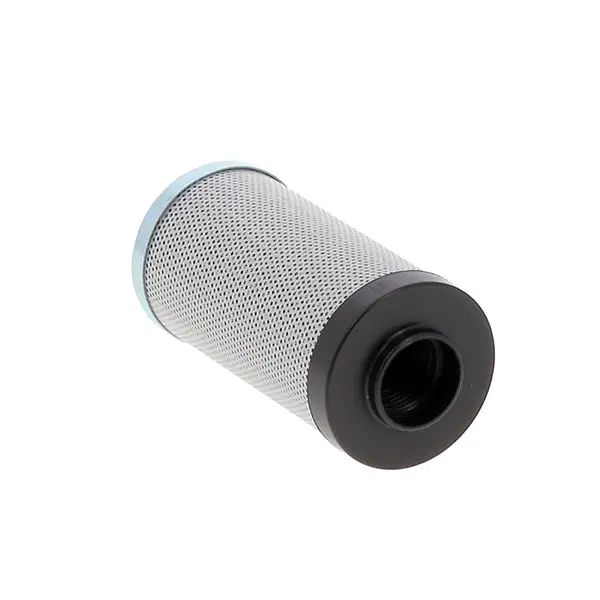The Importance of Hydraulic Filters in Maintaining System Efficiency
2025-03-04
Hydraulic systems are the backbone of many industries, from manufacturing to construction and agriculture. These systems rely on hydraulic fluid to transmit power and perform tasks, but without proper filtration, the system can suffer from contamination, leading to reduced efficiency, component wear, and costly downtime. This is where hydraulic filters come into play. In this blog, we’ll explore the vital role of hydraulic filters, how they work, and why they are essential for the long-term performance of hydraulic systems.
What is a Hydraulic Filter?
A hydraulic filter is a component designed to remove contaminants such as dirt, dust, metal particles, and other impurities from the hydraulic fluid in a hydraulic system. These contaminants can come from a variety of sources, including the environment, wear and tear of system components, and even the fluid itself. Hydraulic filters help to ensure that the hydraulic fluid remains clean, protecting sensitive parts like pumps, valves, and actuators from damage.
How Do Hydraulic Filters Work?
Hydraulic filters function by using a filter element that captures particles and debris from the fluid as it flows through the filter. The filter is usually placed within the hydraulic circuit at strategic points to ensure the fluid stays clean throughout the system. When the hydraulic fluid passes through the filter, contaminants are trapped by the filter media, allowing only clean fluid to flow downstream to the rest of the system.
There are various types of filter elements, including:
- Wire Mesh Filters: Made of woven metal wire, these filters are durable and can capture larger particles. They are commonly used in less critical areas where fine filtration is not as crucial.
- Paper Filters: These filters provide finer filtration and are used in situations where small particles need to be removed. They are often found in high-precision hydraulic systems.
- Microglass Filters: These are high-performance filters that use layers of glass fibers to capture extremely small particles. They are used in applications where the cleanliness of the hydraulic fluid is critical for system performance.
The filtration process is essential for maintaining the pressure, flow, and performance of the hydraulic system.
Types of Hydraulic Filters
Hydraulic filters come in various designs, each suited to specific applications and requirements. Some of the most common types include:
1. Suction Filters: These filters are installed on the suction side of the pump, where they prevent large contaminants from entering the system. Suction filters are typically coarser and help protect the pump from damage.
2. Return Line Filters: Positioned on the return line, these filters capture contaminants after the hydraulic fluid has passed through the system and is returning to the reservoir. Return line filters help maintain fluid cleanliness by removing debris before it re-enters the system.
3. Pressure Filters: These filters are located in the pressurized part of the system and filter the fluid while it is under pressure. Pressure filters are usually finer filters, as they protect sensitive components such as valves and pumps from contamination that could affect their operation.
4. Inline Filters: Inline filters are installed directly in the hydraulic line to filter fluid during its travel between different components. They provide a versatile filtration solution and can be used in various stages of the hydraulic circuit.
5. Breather Filters: These filters are installed in the reservoir’s breather cap to prevent contaminants from entering the system as the fluid level fluctuates. They allow air to enter and exit the reservoir while filtering out airborne particles.
Why Are Hydraulic Filters Important?
1. Preventing Component Damage: One of the main reasons hydraulic filters are crucial is that they help prevent damage to vital components like pumps, motors, valves, and actuators. Contaminants in the hydraulic fluid can cause excessive wear, resulting in reduced component life and costly repairs. By keeping the fluid clean, filters protect sensitive parts and extend the lifespan of the entire hydraulic system.
2. Improving System Efficiency: Contaminants can increase the friction within the system, which leads to energy losses and decreased efficiency. Hydraulic filters remove these contaminants, ensuring smooth operation and optimizing the overall performance of the system. This, in turn, leads to better energy efficiency and reduced operating costs.
3. Maintaining Fluid Integrity: Hydraulic fluid needs to maintain its properties, such as viscosity, in order to perform effectively. Contaminants can degrade the fluid, changing its chemical properties and making it less effective. By filtering out impurities, hydraulic filters help maintain the integrity of the fluid, ensuring it continues to work at peak efficiency.
4. Minimizing Downtime: A hydraulic system failure caused by contamination can lead to unexpected downtime, which is both costly and disruptive. Regular filtration prevents the build-up of debris and reduces the risk of system failure, allowing equipment to run smoothly and minimizing downtime.
5. Environmental Protection: Many hydraulic systems are used in heavy-duty applications such as construction and agriculture, where the environment can be exposed to contaminants from hydraulic fluid leaks. Proper filtration ensures that the fluid stays clean and minimizes the risk of pollution from contaminated fluid leaks or spills.
Regular Maintenance and Filter Replacement
While hydraulic filters are designed to last a long time, they do require regular maintenance and occasional replacement. Over time, the filter element can become clogged with contaminants, reducing its effectiveness. If the filter is not replaced or cleaned regularly, it can lead to higher pressure drops, increased energy consumption, and potential system failures.
A regular maintenance schedule should include checking the filter condition, cleaning or replacing filter elements, and monitoring the cleanliness of the hydraulic fluid. Some hydraulic systems have a pressure differential indicator or a contamination indicator that provides real-time feedback on the filter’s performance and when it needs to be replaced.
Conclusion
Hydraulic filters are an essential component in maintaining the efficiency, reliability, and longevity of hydraulic systems. By preventing contamination, protecting sensitive components, and ensuring smooth operation, these filters help optimize performance and reduce operational costs. Regular maintenance and monitoring of filters are necessary to ensure that the hydraulic system continues to perform at its best. Whether in construction, manufacturing, or any other industry that relies on hydraulic systems, investing in high-quality hydraulic filters is crucial for maximizing operational efficiency and minimizing downtime.



